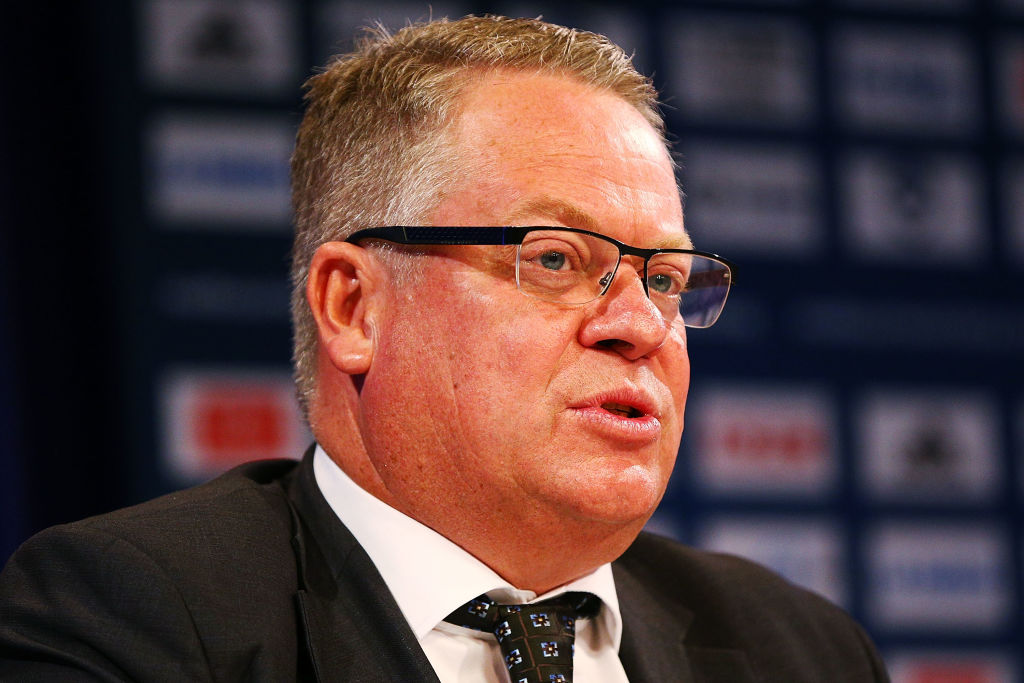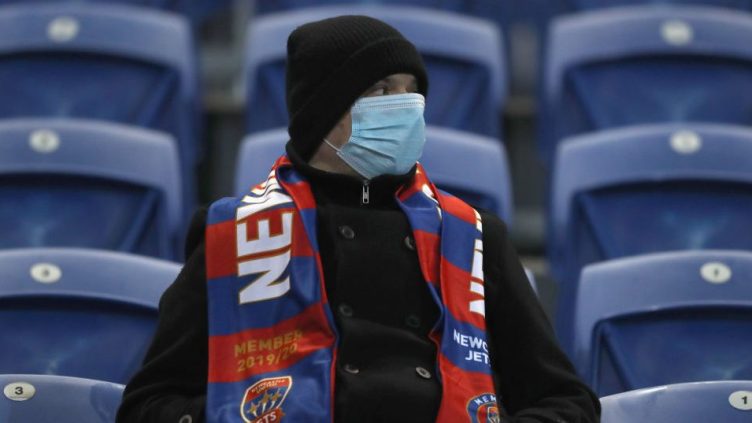A-Leagues Commissioner Greg O’Rourke tells Tom Smithies how the competitions will keep running despite the need to postpone games amid escalating positive cases.
THIS WEEKEND: What January 7-9 looks like now for the A-Leagues
PREVIEW: There are still six games to enjoy this weekend
Q: What are the criteria for a team to seek a postponement due to Covid cases?
A: The position that we’ve taken with the clubs is that if they have five players from the matchday squad for their last game test positive, they can request a postponement.
Say there was three from the matchday squad and two scholarship players all with Covid, that wouldn’t be enough. Of course, even with five or more, they can also choose to play on if the club wishes to. Really it’s about common sense or the size of their squad.
Q: Do you require actual proof of positive tests?
A: We rely on the club doctors collecting the information and talking to the League’s chief medical officer, because we’re dealing with people’s personal medical records.
Q: Could a team seek a postponement due to training disruption from isolation rather than actual positive tests?
A: We haven’t had that situation at the moment where the training has been an issue without being attached to a club that needs to postpone because of positive PCR tests. Again, it will come down to common sense, a lot of this situation is down to a case by case basis.
Q: What is the testing regime, and the protocol for positive cases?
A: Every day they’re required to come to training or to play, players and coaches need to take a rapid antigen test (RAT). Those tests can give false positives, so in the case of a player returning a positive RAT, the rest of the squad can train on but that player can’t enter the training facility and they must get a PCR test, isolating until they get the result. If it’s positive, then the whole of the playing squad and coaching staff will take a PCR test and isolate pending the results.
Q: Is there a point at which you’re going have to suspend the season as these postponements keep coming?
A: I don’t think so at this point in time, because we’re looking at this on a game by game basis. We’re already starting to see a situation where teams who have had high numbers of Covid in their cohort, such as Melbourne City, will now return to competition, after having missed two rounds.
Then you’ve got this cycle, if you like, where clubs with a critical mass of Covid will then be cleared to return and they’ve had Covid. So I think we’re going to see a rolling effect rather than a cessation of the season.
Q: How will we squeeze the games in if more keep getting postponed? How hard a deadline is the June international window?
A: At the moment we have the capacity for more midweek games, and we’ll work with the FA about playing through the January and March international windows as necessary.
The other option we have is the current 26 games per team could be reduced down to 22 if needed without affecting the integrity of the competition. That option has been in our top draw for the last two years but we haven’t needed it to date.
In terms of when we finish the men’s season – I’m pretty sure we can complete it by end-May, using the options above, but we haven’t taken the option of working with the FA about June off the table.

Q: How long do players have to isolate if they have it, does it vary between states?
A: It’s between 10 and 14 days if they’ve got Covid, depending on the state, and mostly seven days now if they’re a household contact. That’s an important factor because at some clubs you have multiple players in share houses.
There are other situations where you can be a casual or a workplace contact; in some states, that’s test and isolate until you get a negative PCR result, and in other states, it’s seven days isolation.
It is becoming a bit more harmonized but you still need to have every single state and territory on your mind when you’re making decisions. Some require a test on the way in, some on the way out, in some you’re required to test later. These things can change on a daily basis.
Q: What’s the current situation with Perth Glory’s men’s team?
A: They will play their next match on the 15th of January, that was originally scheduled to be at home to Wellington. As Wellington can’t enter WA, Perth will return to New South Wales to play that game plus others in a revised draw, then fly to Victoria to face Melbourne City on February 6 before flying home to Perth – by when the WA border is scheduled to have opened.
The vast majority of their games from that point will be at home.
Q: And what about Perth Glory’s Liberty A-League team?
A: After playing Adelaide on January 1 they have been based in NSW, and we anticipate that being the case until the WA borders reopen.





